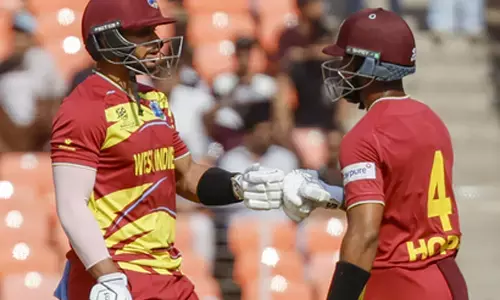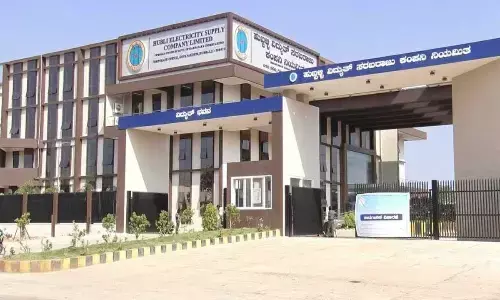INDIAN parliament has had another sterile session. I do not understand why members wanted its extension when there was no business conducted for several days. It is a familiar pattern now. One party or the other, however small, disturbs one of the two houses. Once the undisrupted house comes to know that the other is not functioning, it follows suit on some pretext or the other. The state legislatures are no better.

What members do not realise is the extent of cynicism which is building up against the politicians. The very word, politics, has come to be derided. This is a dangerous trend for the democratic polity we have. Desperate elements jump into the arena to propagate other options.
This happened in Pakistan when General Mohammad Ayub Khan, the army chief, came to power. The then President, Iskander Mirza, himself asked him to administer for “some time” so that the unruly forces were curbed. Ayub lengthened “some time” and did not allow the civil government to return.
True, democracy has returned to Pakistan and Prime Minister Nawaz Sharif has come through the ballot box. But he has to be cautious because the army chief is always overlooking his shoulders. In fact, my reading is that once the army comes to rule in a third world country, it may go back to the barracks but its “presence” remains.
Bangladesh, engulfed in violence, can have the intervention of the army easily. But it is itself reluctant. It failed last time in 2009 to put together a setup without the two Begums, Shiekh Hasina and Khalida Zia. The then army chief, General Moin U Ahmed, as he admitted later, that the misrule of the Begums was a staple food of the people in Bangladesh and that they wallow in mess created by hartals and bandhs. Now the situation has deteriorated because the Jammat-e-Islami has methodically built up its strength and has a visible presence in every segment, including the media.
I do not think that these examples will deter members of Parliament or State legislatures from disturbing the proceedings in their respective Houses in India. They want attention. A rumpus by a member gets more prime space both in electronic and print media than a mature and responsible speech. Media is to be blamed for this.
In a way, this also explains the phenomenon of Narendra Modi, the prime ministerial candidate of the BJP. He is a demagogue who arouses aspirations of people and indulges in a divisive politics.
This has helped the BJP to increase its tally in the state elections in Madhya Pradesh and wrest Rajasthan from the hands of the ruling Congress. However, his thesis of strong man and a decisive leader has given new ideas to the people. Disenchanted as the people are with the way the parliamentary system is working, they are toying with the idea of presidential system.
India has experienced authoritarianism when Prime Minister Indira Gandhi imposed the Emergency. One hundred thousand people were detained without trial and Mrs Gandhi ousted morality from politics. We have not been able to revive the institutions even after 35 years of the imposition of the Emergency. Both the bureaucracy and the police continue to be the instruments of tyranny in the hands of rulers at the centre and in the States.
What consequently happens is the synergy they bring about in the programme and functioning of the two major parties, the Congress and the BJP. They are two sides of the same coin. I heard it at a gathering Arun Jaitley, the BJP leader and Digvijay Singh, a Congress leader, attended. Both expressed more or less the same views and conceded that their policies on economics and foreign affairs coincided.
Since the two main parties are on the same page, Parliament has become a status quo body. The adjournments or the walkouts are not on the basis of issues but for trivial reasons. An example is the bill on the division of Telangana as both parties support it.
The bifurcation of Andhra Pradesh, I believe, will be a disaster and create insolvable problems, particularly on the sharing of water and the capital. The situation is aggravated when the Centre says that it will be the custodian of rivers. In other words, the ruling party at the Centre will dictate. Still the Congress and the BJP have gone ahead splitting the State because of political considerations they have.
What surprises me is the BJP’s opposition to the communal violence bill. It has become necessary since the police force has come to have a pro-Hindu tilt. Most Hindu-Muslim riots begin between the two communities. But they get converted into a fight between the Muslims and the police.
This formulation is confirmed by the Justice Srikrishna Commission, appointed for inquiring into the Mumbai riots during December 1992-January 1993 and the March 12, 1993 bomb blasts. “It is true that there might not have been incidents of private firing as put forward by the police, but on several occasions there were attacks by Muslim mobs on the police, clashes between violent mobs of Muslims and Hindus...”
I think the partisan attitude of the security forces has surfaced because of States’ interference. This situation can be met through a federal police force. It can be used by the Centre at places where the minorities are targeted with the connivance of the State government.
The federal police can also be used to protect the property owned by the Centre. Some years ago when Kerala government was at the back of the protesters, the places belonging to New Delhi were set on fire. America, like India, has a federal polity and has constituted a federal police force. It has gone many a time to the States where the segregation on the basis of colour had taken a toll on the black. The Mississippi riots are a staring example of Washington’s intervention.
The communal riots are increasing in India. The country may not practice racial discrimination but still suffers from indifference towards the minority. The importance of legislatures and parliament is primarily for the rule of law.
And it has to be safeguarded and enforced at all costs. This determination seems to be lacking.












